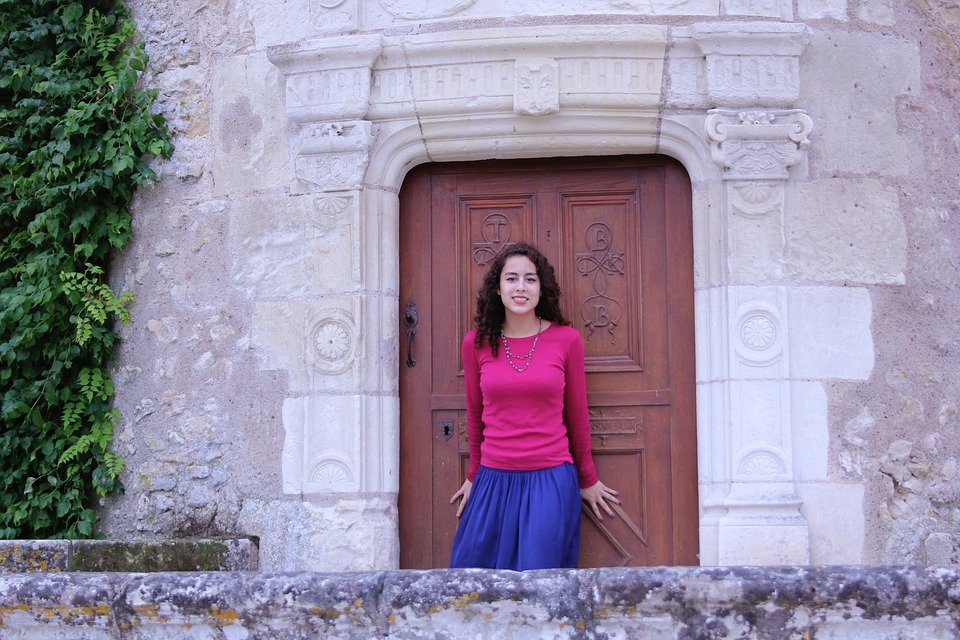It took me a while to get through it this time, considering it is only 303 pages. I had read it in 2005 with, as I remember, considerately less difficulty. This difficulty did not consist in following or comprehending the story so much as having the energy and stamina to plow through the long, long sentences and paragraphs for any considerable amount of time. I quickly found that it would be impossible for me to get through more than a page or two at night, my usual reading time, before I would fall asleep; and even at other times I would find my concentration waning during particularly convoluted sections and my mind to stop taking in the words on the page and following the flow of such words as it read off on other tangents and streams of thought of its own. I was able to get through a decent number of pages (say 20) at soccer practices and games, and, when that season ended, at swimming practice. But this was only a couple of times a week.
I am surprised by the apparent decline in energy for relatively difficult reading that has overtaken me between age 35 and 43. I am starting to expect this to be the case when I re-read books I read in my 20s, but by 35 I already had two children and it seemed to me at the time that my brain was already effectively turned to mush compared to what it had been formerly. I remember when I was younger some people (usually men of a certain age and grave bearing) would say that one should not attempt to read Henry James or Proust or some similar writer until one was very mature, knew something of life. This seems to me foolish advice anyway--I am pretty sure that the more of one's life one enjoys a familiarity with the Greats, the better--but I also do not see any evidence that one's capacity for understanding literature uniformly improves as one ages. Perhaps there are some things one has greater knowledge or experience of in more mature years, and this produces insights that were inaccessible to him at 22--but it seems to me that at least as many abilities are lost.
I am still certain by the way that this is a very great book. There were moments where I wondered if some of the exceptionally long strains of thought and exposition were extraneous; on the whole however these are what gives the book its character and weight and tremendous density. It is one of the many interesting things about Faulkner, that there is not a real consensus about what his best book is. The Sound and the Fury is probably the most famous, because so many people read it in school, or used to anyway, but I don't sense that it is widely considered the best by readers and critics who care about such things. The Sound and the Fury and Absalom, Absalom are the only two full Faulkner novels I have read, and Absalom seems to me the greater of the two by a significant amount, and some people think it is the best of all his works, but certainly not a majority or even I think a plurality. The story has an epic quality, and every element in it--characters, houses, fortunes, generation, wars, decay--is an extreme illumination of a world. I thought he was pretty forthright in how he took up the racial aspect of the story too, even to the point of trying to address it seriously at all (at least from some kind of white point of view), especially compared to other writers working at the time he was.
As I was taking my time getting through this book, I began to consider how many very long books there are going to be on this list, some of which I have read already, and began to think that maybe I really didn't need to read Clarissa a second time, or Forever Amber. I wouldn't mind passing on Euphues either, though as I remember nothing of it and completely missed the point the first time I suppose I would feel obligated to give it an honest try. In truth I am pretty rigid where it comes to following my lists, and I suspect that if such time comes that I come around to Clarissa again that I will not want to mess up the equilibrium I am getting from diligently going through the list by skipping it. But reading it all the way through again will take a long, long time.
The Challenge
The challenge produced many books this time, but its flaws are again revealed in the results:
1 (tie). Norman C McClelland, Encyclopedia of Reincarnation and Karma.......5.00
The U.S. Government Survival Under Atomic Attack.............................5.00
Various, Hermeneutics at the Crossroads...............................................5.00
4. Kasia Boddy, Boxing: A Cultural History..............................................4.75
5. Maira Kalman, And the Pursuit of Happiness..........................................4.74
6. Kathy Casey, D'Lish Deviled Eggs..........................................................4.69
7. Harper's Encyclopedia of Mystical & Paranormal Experience..............4.64
8 (tie). William Faulkner, Light in August............................................................4.54
Rebecca Skloot, Immortal Life of Henrietta Lacks................................4.54
10. Blythe Gifford, His Border Bride.............................................................4.50
11. Danielle LaPorte, The Firestarter Sessions.............................................4.48
12. Clifford Geertz, Local Knowledge...........................................................4.33
13. Daniel S. Burt, The Novel 100................................................................4.29
14. Ann Carson, Nox....................................................................................4.27
15. Lydia Davis (translation), Madame Bovary..............................................4.25
16. Thomas Jefferson, Memoirs, Correspondence & Miscellanies................4.20
17. Tara Conklin, The House Girl.................................................................4.18
18. Terry Castle, The Professor & Other Writings.......................................4.10
19. Bill Minutaglio & Steven L. Davis, Dallas 1963.......................................4.02
20. Various, Anthology of Rap.....................................................................3.90
21. Elif Batumen, The Possessed...................................................................3.83
22. Peter Carey, Parrot & Olivier in America..............................................3.77
23. Martin Amis, The Pregnant Widow.........................................................3.10
24. Jonathan Franzen, Freedom.....................................................................3.01
25. John W. Cousin, A Short Biographical Dictionary of English Literature2.00
There were many competitors this time that had garnered no ratings. These were: A Critical Companion to William Faulkner (various authors), Bloom's Modern Critical Reviews: Gabriel Garcia Marquez, Female Warriors Vol. II (Ellen Clayton), Ethics (Roth, editor. 3,476 pages), The Story of Gabriel & Marie Maupin: Huguenot Refugees to Virginia in 1700 (Dorothy Maupin Shaffet), Encyclopedia of Gothic Literature (Mary Ellen Snodgrass), Journey's Within (Oscar Webb), The Chinese Medical Ministries of Kang Sheng & Shi Meiyu 1872-1937: On a Cross-Cultural Frontier of Gender, Race, and Nation (Connie A. Shemo), The Story of Charles Strange (Mrs. Henry Wood), and a book that looks like The Deadly Link by Peter Eyre, but my handwriting is poor and I now cannot find any evidence of this title's existence.
I can see now why Franzen doesn't like internet rating systems. On the other hand, his book had well over a thousand reviews; only the Henrietta Lacks book, which has become popular in schools (perhaps replacing The Sound & the Fury?) had a comparable number. Many of the other books, including the Martin Amis book, despite appearing on New York Magazine's top ten list for 2011, had fewer than a hundred reviews, and some were down in the twenties. All of the three winners were of course in very limited sample sizes. The reincarnation and karma book had five, so I guess it wins the tiebreaker. The other two had just a single review. I was wondering if perhaps I should adopt a requirement that books had to have at least ten ratings to be considered for the challenge, but I think I will leave it for now. If I have to take up a challenge after every list book, I will likely never get through the list itself, which is the main object. However, it does seem that a lot of books that are probably at a level that I would like are rated too low for it to be likely that they would ever win. So I suspect the system will require tweaking at some point. I am pretty good at devising games and systems for myself, and I think it will come to me what needs to be done. I am going to give it a run of 10-15 cycles first though.
Of course I am going to decline the challenge here. None of the purported winners are available in libraries or for less than $1 online, which are further qualifications for my reading them. So it will be on to the next classic on the list, Adam Bede, which I have also read previously (2000) and which is over 600 pages, but it is very good, a prototypical classic English novel, which is what I was brought up on, and I think I will not have many problems getting into it again.
The Challenge also turned up a few video options. Here were those results:
1. The Honeymooners: Classic 39 Episodes.............4.79
2. I Don't Want to Talk About It...............................4.71
3. True Blood: Season 2............................................4.43
I have never actually watched the Honeymooners--for some reason it was not on in syndication, at least at the times of day when I would have seen it, in Philadelphia when I was a youth--so I have decided to accept this challenge and add it to my queue. Perhaps I will have something to say about it next time.
The title of Absalom, Absalom of course comes from Second Samuel in the Old Testament, so I've been filling in this interval with re-reading that as well. It is one of the better books in the Bible, though I generally enjoy the whole thing. I am affected by it.
Wednesday, November 27, 2013
Wednesday, November 13, 2013
Russia
1. Moscow..................................25
2. Leningrad...............................13
3. Oryol........................................4
Rostov......................................4
5. Pskov.......................................3
Tula..........................................3
7. Nizhni Novgororod.................2
8. Bashkortostan..........................1
Lipetz.......................................1
Novgorod.................................1
Omsk........................................1
Penza........................................1
Samara......................................1
Smolensk..................................1
Tatarstan...................................1
Tver..........................................1
Udmurt......................................1
Ulyanovsk.................................1
Voronezh..................................1
2. Leningrad...............................13
3. Oryol........................................4
Rostov......................................4
5. Pskov.......................................3
Tula..........................................3
7. Nizhni Novgororod.................2
8. Bashkortostan..........................1
Lipetz.......................................1
Novgorod.................................1
Omsk........................................1
Penza........................................1
Samara......................................1
Smolensk..................................1
Tatarstan...................................1
Tver..........................................1
Udmurt......................................1
Ulyanovsk.................................1
Voronezh..................................1
France
1. Ile-de-France..........................85
2. Normandy...............................12
Provence-Alpes-Cote d'Azur..12
4. Picardy.....................................8
5. Rhone-Alpes............................7
6. Languedoc-Roussillon......…...4
7. Burgundy.................................3
Centre-Val de Loire.................3
9. Acquitaine................................2
Anjou........................................2
Gironde.....................................2
Guyenne & Gascony................2
Midi-Pyrenees...........................2
Pays de la Loire.........................2
Poitou........................................2
16. Alsace......................................1
Artois.........................................1
Auvergne...................................1
Brittany......................................1
Corsica.......................................1
Dordogne...................................1
Franche-Comte..........................1
Limousin...................................1
Lorraine.....................................1
Lyonnais....................................1
Nivernais...……………………1
Occitania……………………...1
Orleanais....................................1
Quercy.......................................1
Savoie........................................1
Touraine....................................1
2. Normandy...............................12
Provence-Alpes-Cote d'Azur..12
4. Picardy.....................................8
5. Rhone-Alpes............................7
6. Languedoc-Roussillon......…...4
7. Burgundy.................................3
Centre-Val de Loire.................3
9. Acquitaine................................2
Anjou........................................2
Gironde.....................................2
Guyenne & Gascony................2
Midi-Pyrenees...........................2
Pays de la Loire.........................2
Poitou........................................2
16. Alsace......................................1
Artois.........................................1
Auvergne...................................1
Brittany......................................1
Corsica.......................................1
Dordogne...................................1
Franche-Comte..........................1
Limousin...................................1
Lorraine.....................................1
Lyonnais....................................1
Nivernais...……………………1
Occitania……………………...1
Orleanais....................................1
Quercy.......................................1
Savoie........................................1
Touraine....................................1
Italy
1. Lazio........................37
2. Tuscany....................17
3. Lombardy.................11
4. Sicily.........................6
5. Veneto.......................5
6. Abruzzo.....................4
Sardinia......................4
8. Campania...…………3
Emilio-Romagna.......3
10. Puglia..... .................2
11. Marches...................1
Umbria.......................1
2. Tuscany....................17
3. Lombardy.................11
4. Sicily.........................6
5. Veneto.......................5
6. Abruzzo.....................4
Sardinia......................4
8. Campania...…………3
Emilio-Romagna.......3
10. Puglia..... .................2
11. Marches...................1
Umbria.......................1
Subscribe to:
Comments (Atom)









